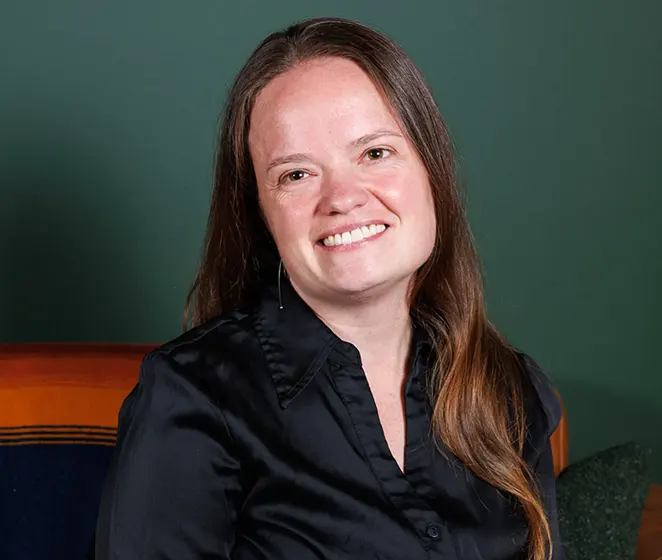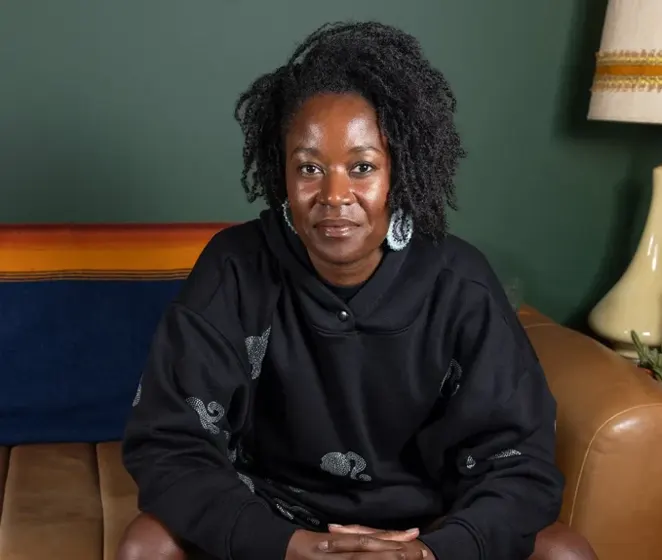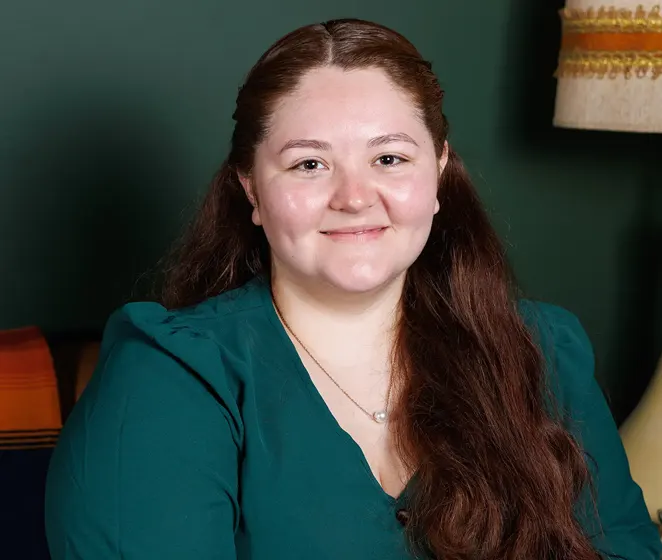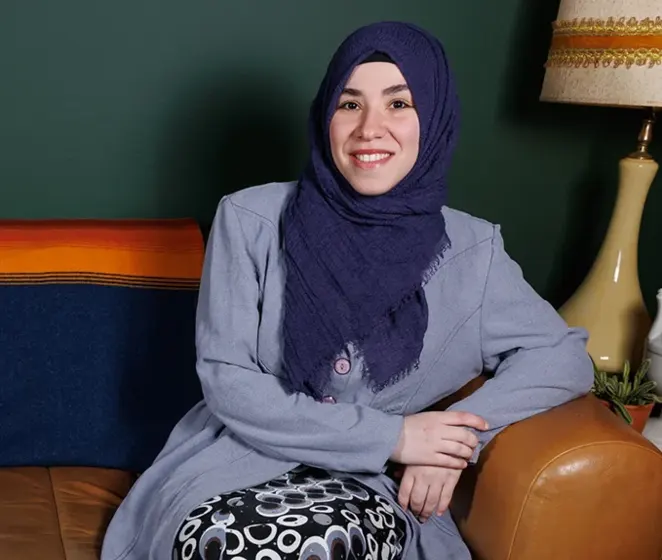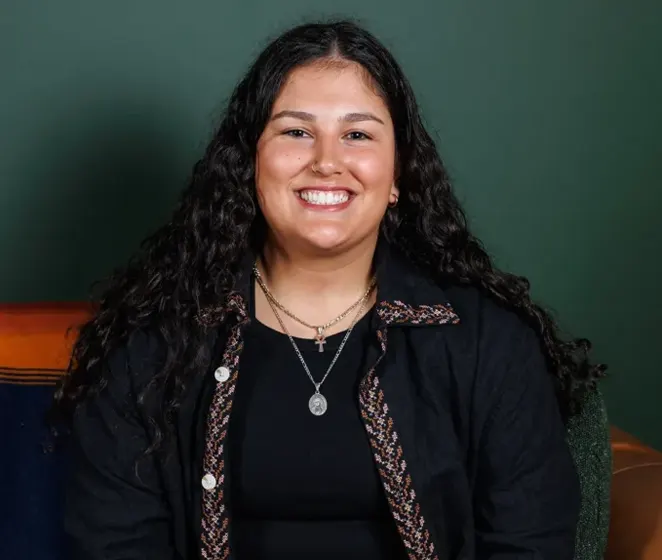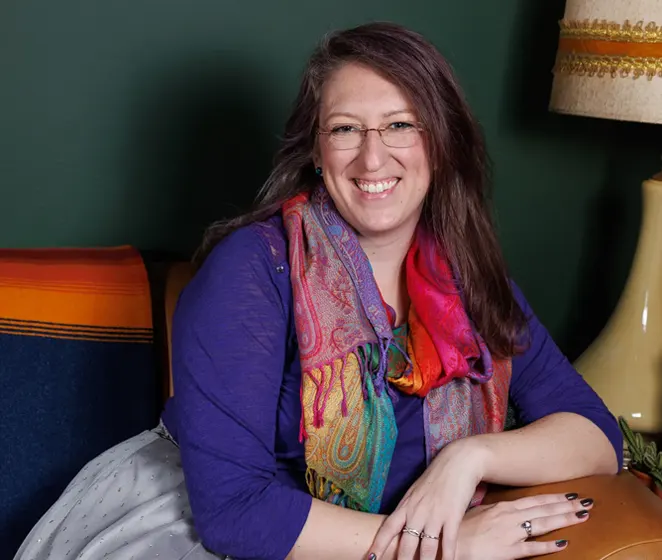
Jenny McGrath is a Somatic Psychotherapist and Movement Educator at Indwell Movement, a platform offering online somatic education, movement classes, and healing courses that integrate body‑based approaches with trauma awareness and social justice. She is a licensed mental health counselor, Somatic Experiencing Practitioner, and certified yoga teacher who has spent over a decade researching how movement, dance, and the body can heal trauma and religious sexual shame. Jenny‘s work focuses especially on supporting individuals recovering from purity culture and religious trauma through embodiment, somatic connection, and liberation‑centered healing.
Here’s a glimpse of what you’ll learn:
- [1:43] Jenny McGrath reflects on growing up in evangelical purity culture and how her body signalled a new path
- [4:18] Using somatic questions like “what are you noticing?” to reconnect clients with their bodies
- [8:06] Why systems of disembodiment like white supremacy and heteronormativity rely on compliance
- [16:25] Jenny’s Embodied Story and Embodied Sexuality courses
- [22:20] How abstinence-only education erases consent and fosters systemic sexual abuse
- [27:09] Insights from Jenny’s research and book Anatomy of a Missionary on purity culture, shame, and white saviorism
In this episode…
Many people raised in purity culture carry unspoken shame, disconnection, and confusion about their bodies well into adulthood. The messages of control and fear can leave lasting imprints on identity, sexuality, and the ability to feel safe in one’s own skin. How do we begin to untangle those patterns and move toward embodied healing?
According to Jenny McGrath, a licensed mental health counselor, somatic experiencing practitioner, and movement educator, the body itself is the key to reclaiming wholeness. She explains that years of religious conditioning often silence our inner wisdom, leading to dissociation and compliance with oppressive systems. By centering questions like “What are you noticing?” and inviting curiosity about tears, breath, and sensations, Jenny highlights the radical power of listening to the body. She emphasizes that true healing cannot be separated from collective liberation, as marginalized bodies face systemic barriers to safety.
In this episode of With Intention, Liz Frost sits down with Jenny McGrath, Somatic Psychotherapist and Movement Educator at Indwell Movement, to discuss healing from purity culture through somatic therapy and movement. She explores how religious trauma severs our connection to the body, why abstinence-only education harms consent and sexuality, and the role of embodiment in resisting systems of oppression. Jenny also shares insights from her upcoming book on purity culture and white saviorism.
Resources Mentioned in this episode:
Quotable Moments:
- “My body I saw as a tool rather than a living, breathing, sovereign being.”
- “I often say I’m never surprised at how much our bodies have to say when we just give them space to speak and to listen.”
- “Tyrants have always understood that the more robotic people are, the more easily manipulated they are.”
- “No one else in all of time has lived in your body but you.”
- “I actually want them to grow their tolerance for bearing whatever they feel — the sorrow, the anger, the joy, the pleasure.”
Action Steps:
- Rebuild connection with your body: Noticing sensations, breath, and movement helps counteract dissociation and fosters authentic self-awareness.
- Question purity culture narratives: Identifying harmful messages about sexuality and the body is essential for breaking cycles of shame.
- Normalize consent education: Teaching consent as foundational protects individuals from harm and challenges systems that enable abuse.
- Hold space for anger and grief: Allowing these emotions to surface safely strengthens resilience and prevents energy from turning inward destructively.
- Link personal healing to collective liberation: Recognizing how oppression impacts bodies ensures that embodiment practices support equity and justice.
Sponsor for this episode
This episode is brought to you by Intentional Spaces Psychotherapy.
Founded by Liz Frost, LICSW, Intentional Spaces offers inclusive, trauma-informed virtual care across Washington State, helping individuals, couples, and families navigate life’s complexities.
Whether you’re processing religious trauma, exploring your identity, or seeking support for anxiety or depression, their diverse team of therapists specializes in EMDR, CBT, DBT, and narrative therapy, ensuring personalized support for every client.
Ready to embark on your healing journey? Go to intentionalspaces/contact, and take the first step toward a more intentional life.







